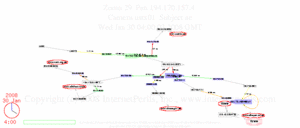Despite last minute attempts by the French government to divide them, European MEPs today voted decisively against “three strikes”, the IFPI-promoted plan to create a class of digital outcasts, forbidden from accessing the Net if repeatedly accused by music companies of downloading infringing content.The European Parliament voted for social inclusion, participation, and human rights over profits for a tiny group of companies. That wasn’t hard. Even if the vote had gone the other way, it wouldn’t have produced any real security for the tiny group, and the way it did go, it produces far more security for everyone else. Maybe the U.S. can get the message.In a vote held today, hundreds of MEPs supported language which declared termination of Internet access to be in conflict with “civil liberties and human rights and with the principles of proportionality, effectiveness and dissuasiveness”, all core values of the European Union.
… And Guy Bono, the author of the report, had this to say in the plenary:
“On this subject, I am firmly opposed to the position of some Member States, whose repressive measures are dictated by industries that have been unable to change their business model to face necessities imposed by the information society. The cut of Internet access is a disproportionate measure regarding the objectives. It is a sanction with powerful effects, which could have profound repercussions in a society where access to the Internet is an imperative right for social inclusion.”— European Parliament to Sarkozy: No “Three Strikes” Here, Posted by Danny O’Brien, EFF, April 10th, 2008
-jsq








